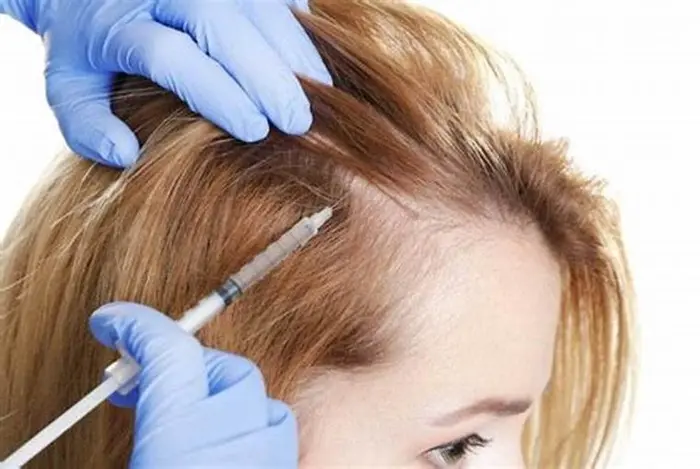Hair transplant surgery has become a popular solution for hair loss. It involves the relocation of hair follicles from one part of the body to the thinning or balding areas. While the results can be transformative, the post-operative experience can involve several side effects. One common concern among patients is numbness in the scalp following the procedure. This article will explore how long the head stays numb after a hair transplant, factors influencing the duration of numbness, and how patients can manage this sensation.
Understanding Hair Transplant Surgery
What Is Hair Transplant Surgery?
Hair transplant surgery involves harvesting hair follicles from a donor site, usually the back of the head, and transplanting them to areas experiencing hair loss. The two primary techniques used are Follicular Unit Transplantation (FUT) and Follicular Unit Extraction (FUE).
FUT involves removing a strip of scalp from the donor area and dissecting it into individual follicular units. This technique often results in a linear scar.
FUE involves extracting individual follicular units directly from the donor area, resulting in tiny dot scars that are less noticeable. Both methods have their advantages and considerations, but FUE is generally less invasive.
Why Does Numbness Occur?
Numbness after hair transplant surgery is a common and expected side effect. It occurs due to the disruption of nerve endings during the extraction and implantation process. The scalp has an extensive network of nerves, and the surgical procedure can temporarily affect their function, leading to a loss of sensation in the treated area.
Duration of Numbness
Typical Time Frame for Numbness
The duration of numbness after a hair transplant can vary among patients. However, it typically lasts from a few days to several weeks. In most cases, patients start to regain sensation within 3 to 8 weeks post-surgery. It is important to note that complete recovery can sometimes take longer, extending to several months.
Factors Influencing Duration
Several factors can influence the duration of numbness after a hair transplant:
Surgical Technique: The method used (FUT or FUE) can affect the extent and duration of numbness. FUT, being more invasive, might result in a longer period of numbness compared to FUE.
Extent of Surgery: The size of the treated area and the number of grafts transplanted can impact recovery time. Larger procedures may result in more prolonged numbness.
Individual Healing Response: Each patient’s body responds differently to surgery. Factors such as age, overall health, and individual healing capacity can influence the duration of numbness.
Surgeon’s Skill: The expertise and technique of the surgeon play a significant role in post-operative outcomes. An experienced surgeon can minimize trauma to the nerves, potentially reducing the duration of numbness.
See Also: When Hair Start Growing After Hair Transplant?
Managing Numbness
Immediate Post-Operative Care
Proper post-operative care can help manage numbness and promote faster recovery. Here are some steps patients can take:
Follow Surgeon’s Instructions: Adhering to the surgeon’s guidelines for post-operative care is crucial. This includes taking prescribed medications, avoiding strenuous activities, and keeping the scalp clean.
Use Cold Compresses: Applying cold compresses to the treated area can help reduce swelling and numbness. However, it should be done gently and for short durations to avoid damaging the transplanted grafts.
Avoid Touching the Scalp: Patients should avoid touching or scratching the scalp to prevent further irritation and potential damage to the nerves.
Long-Term Care and Sensation Recovery
As the healing process continues, patients can take additional steps to support recovery and regain sensation:
Massage Therapy: Gentle scalp massages can stimulate blood flow and nerve function. It is essential to wait until the surgeon advises that it is safe to start massaging the scalp.
Healthy Diet: A balanced diet rich in vitamins and minerals can support the body’s healing process. Nutrients such as vitamin B complex, vitamin E, and omega-3 fatty acids are particularly beneficial for nerve health.
Patience and Monitoring: Recovery takes time, and it is important for patients to be patient and monitor their progress. Any concerns or prolonged numbness should be discussed with the surgeon.
When to Seek Medical Advice
Signs of Complications
While numbness is a normal part of the recovery process, certain signs may indicate complications that require medical attention:
Persistent Numbness: If numbness persists beyond the expected recovery period (typically several months), it is important to consult the surgeon to rule out any underlying issues.
Severe Pain: Intense or worsening pain, accompanied by numbness, may indicate an infection or other complications. Immediate medical evaluation is necessary.
Swelling and Redness: Significant swelling, redness, or discharge from the surgical site could be signs of infection. Prompt medical intervention is essential to address these symptoms.
Follow-Up Appointments
Regular follow-up appointments with the surgeon are crucial for monitoring the healing process and addressing any concerns. During these appointments, the surgeon can evaluate the progress, provide guidance, and make any necessary adjustments to the recovery plan.
Conclusion
Numbness after hair transplant surgery is a common and typically temporary side effect. While the duration of numbness can vary, most patients start to regain sensation within a few weeks to several months. Factors such as the surgical technique, extent of surgery, individual healing response, and the surgeon’s skill can influence the recovery timeline. By following post-operative care instructions, managing symptoms, and seeking medical advice when necessary, patients can ensure a smooth recovery and achieve the best possible results from their hair transplant surgery.
Related topics:

